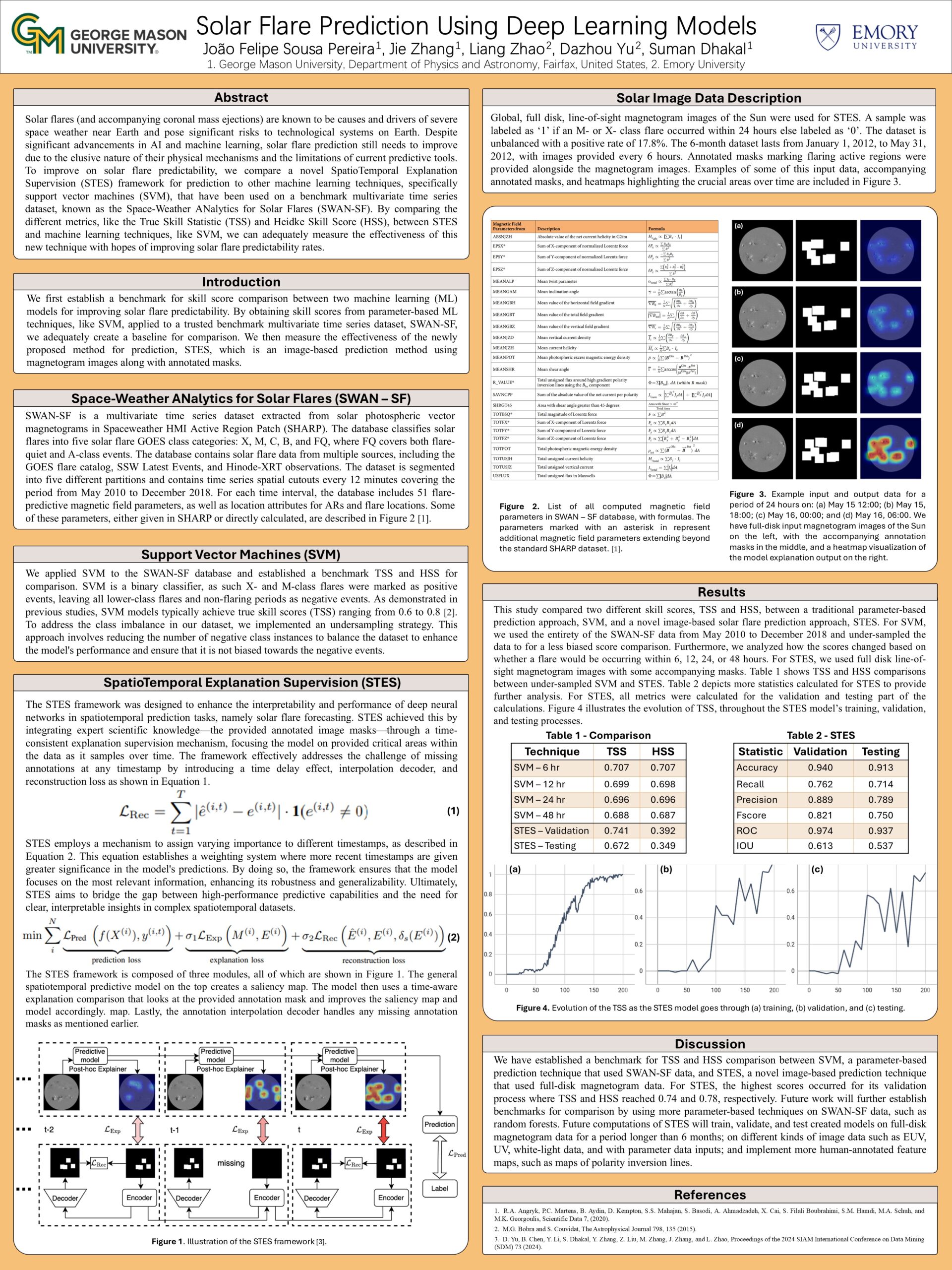Authors: Joao Felipe Sousa Pereira (George Mason University), Jie Zhang (George Mason University), Liang Zhao (Emory University), Dazhou Yu (Emory University), Suman Dhakal (George Mason University)
Solar flares (and accompanying coronal mass ejections) are known to be causes and drivers of severe space weather near Earth and pose significant risks to technological systems on Earth. Despite significant advancements in AI and machine learning, solar flare prediction still needs to improve due to the elusive nature of their physical mechanisms and the limitations of current predictive tools. To improve on solar flare predictability, we compare a novel spatiotemporal explanation supervision (STES) framework for prediction to other machine learning techniques, specifically support vector machines (SVM), that have been used on a benchmark multivariate time series dataset, known as the Space-Weather ANalytics for Solar Flares (SWAN-SF). By comparing the results between STES and machine learning techniques like SVM, we can adequately measure the effectiveness of this new technique with hopes of improving solar flare predictability rates.


